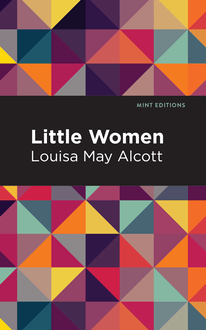-
 Univers
Univers
-
 Ebooks
Ebooks
-
 Livres audio
Livres audio
-
 Presse
Presse
-
 Podcasts
Podcasts
-
 BD
BD
-
 Documents
Documents
-
- Cours
- Révisions
- Ressources pédagogiques
- Sciences de l’éducation
- Manuels scolaires
- Langues
- Travaux de classe
- Annales de BEP
- Etudes supérieures
- Maternelle et primaire
- Fiches de lecture
- Orientation scolaire
- Méthodologie
- Corrigés de devoir
- Annales d’examens et concours
- Annales du bac
- Annales du brevet
- Rapports de stage
La lecture à portée de main

Vous pourrez modifier la taille du texte de cet ouvrage
Découvre YouScribe en t'inscrivant gratuitement
Je m'inscrisDécouvre YouScribe en t'inscrivant gratuitement
Je m'inscrisEn savoir plus
Vous pourrez modifier la taille du texte de cet ouvrage
En savoir plus

Description
Star of India is a romantic novel that follows the complicated courtship and marriage of a young woman who’s disenchanted with the minutiae of life. Refusing to embrace the role of a missionary or tutor, she hastily weds an older man in hopes of breaking away from her family’s oppressive influence.
Stella Carrington is eager to experience life outside the confines of her grandmother’s home. In an attempt to curb Stella’s unconventional desires, her family seeks the help of her godfather Robert Crayfield, a colonel in the Indian service. Instead of occupational guidance, he offers to marry Stella and take her to India as his bride.
Stella discovers the complicated nature of marriage having to navigate new and unexpected responsibilities. Soon, conflicts are amplified by the appearance of Philip Flint, a handsome young officer stationed in town. It’s a classic tale of love and duty that forces Stella to make a difficult but necessary decision.
This is a complex story that bucks tradition pitting one character’s happiness against the desires of another. Star of India is a fascinating look at marriage, the military and colonial politics.
With an eye-catching new cover, and professionally typeset manuscript, this edition of Star of India is both modern and readable.
Sujets
Informations
| Publié par | Mint Editions |
| Date de parution | 01 décembre 2020 |
| Nombre de lectures | 0 |
| EAN13 | 9781513272436 |
| Langue | English |
| Poids de l'ouvrage | 2 Mo |
Informations légales : prix de location à la page 0,0500€. Cette information est donnée uniquement à titre indicatif conformément à la législation en vigueur.
Extrait
Star of India
Alice Perrin
Star of India was first published in 1919.
This edition published by Mint Editions 2020.
ISBN 9781513267432 | E-ISBN 9781513272436
Published by Mint Editions®
minteditionbooks.com
Publishing Director: Jennifer Newens
Design & Production: Rachel Lopez Metzger
Typesetting: Westchester Publishing Services
C ONTENTS P ART 1 C HAPTER 1 C HAPTER 2 C HAPTER 3 C HAPTER 4 C HAPTER 5 C HAPTER 6 C HAPTER 7 C HAPTER 8 C HAPTER 9 C HAPTER 10 C HAPTER 11 C HAPTER 12 C HAPTER 13 C HAPTER 14 P ART 2 C HAPTER 1 C HAPTER 2 C HAPTER 3 C HAPTER 4 C HAPTER 5 C HAPTER 6 C HAPTER 7 C HAPTER 8 C HAPTER 9 C HAPTER 10 C HAPTER 11
PART 1
Chapter 1
I dare not choose my lot;
I would not if I might.
Choose thou for me, my God,
So shall I walk aright.
The rustic portion of the congregation shouted the familiar hymn with laborious goodwill, overpowering the more cultivated voices that rose from the chancel and the front pews—almost defeating the harsh notes wrung from the harmonium by the village schoolmistress, who also led the singing in a piercing key, supported raucously by her pupils gathered about the unmusical instrument. Even in the early ’nineties nothing so ambitious as an organ or a surpliced choir had as yet been attempted in this remote west-country parish, though with the advent of the new vicar innovations had begun; actually, of late, the high oak pews had been removed to make way for shining pitch-pine seats that in the little Norman church produced much the same effect as a garish oleograph set in an antique frame. Most of the parishioners approved the change; certainly it had the advantage of permitting everyone to observe at leisure who came to church, what they wore, and how they behaved during the sermon, even if those who were somnolently inclined found the publicity disconcerting.
Stella Carrington, for one, infinitely preferred the new seats. Though no longer a child—seventeen last birthday—she could never quite forget the hours of misery she had endured in the old pew; the smell of dust and hassocks, the feeling of captivity, the desperate impulse that would assail her to kick open the door, to fling a prayer-book over the barrier, to jump up on the seat; only the fear of grandmamma’s wrath had restrained her from such antics. This Sunday, as she stood between Aunt Augusta and Aunt Ellen, singing the hymn that preceded the sermon, recollections returned to her of her childhood’s trials in the high pew, and with these, unaccountably, came the old sense of imprisonment. The feeling disturbed her; she searched her mind for the cause, and became conscious that it was somehow connected with the presence of Maud Verrall, seated with her parents in the religious preserve of the Squire and his family in the chancel. The Verralls had been absent from The Court for a considerable period, and now here was Maud, who when Stella last saw her had been in short petticoats with her hair down her back, transformed into a young lady; she had a curled fringe, bangles and puffed sleeves; her dress touched the ground, she had a waist, and her hat, of a fashionable sailor shape, was set well to the back of her head. And all this though she was no older than her former playmate, Stella Carrington, whose skirts even now barely reached her ankles, whose hair still hung in a plait, whose hat, in her own opinion, was more suited to a child in a perambulator than to a girl of seventeen. No wonder she felt stifled, cramped! She realised why the memory of her tortures in the old box-like pew had recurred to her mind; and then suddenly the hymn that she knew so well and had sung on such countless Sundays, paying no special heed to the words, struck her as the acme of hypocrisy. She ceased singing, amazed that the recognition had not come to her sooner. Surely whoever was responsible for the wording of this hymn could never have known the tedium for a young person of living with a stony-hearted grandmother and two maiden aunts in a small village where nothing ever happened; the author must have belonged to people like the Verralls, who were, of course, satisfied with their “lot,” and did not want to change it; people who could “dare” do anything they pleased. If she, Stella Carrington, could choose her lot at this moment, she would change places with Maud Verrall; and she wondered how Maud would feel if she found herself forced to accept the lot of Stella Carrington! Would Maud still humbly proclaim that she would not change it even if she might?…
Only when Aunt Augusta, regarding her severely, touched her arm did Stella discover that the hymn was ended; that the congregation was settling down for the sermon. She sank to her seat, blushing, abashed.
Summer had set in early that year, and the sun poured through the stained glass window subscribed for by the parish to a former Squire Verrall, casting kaleidoscopic patterns of purple and crimson on to grandmamma’s brown silk bonnet; a premature bumble-bee droned and bumped up and down the panes, the atmosphere felt airless, and Aunt Ellen sniffed elegantly at her green salts-bottle. Stella grew drowsy; she could not attend to the sermon, and her thoughts strayed on in confusion… Would Canon Grass, the vicar, dare to change his lot if he might? Perhaps he would like to change Mrs. Grass, who was older than himself, for the pretty visitor who was one of The Court party in the chancel pew… And how about Mrs. Daw, who was so artistic, and considered her talents wasted in her position as wife to a country doctor; who complained that no one in the village really understood or appreciated “Art”… How much happier Mrs. Daw would be in London had she the opportunity of changing her lot—of converting her husband into a West End physician. And as to the villagers; everyone knew that they were never contented, no matter what was done for them. At this point in her reflections Stella fell asleep.
The service over, she followed grandmamma and the aunts slowly down the aisle, while the school children clattered through the porch. The Court party left the building by the chancel door, and Stella saw them pace down the slope of the churchyard between the tombstones and the yew trees to where a carriage and pair of horses awaited them at the gates. Squire Verrall went first, in a black coat and a square hat like a box, his whiskers were brushed smartly aside from his ruddy cheeks, his large nose shone in the sun, he waved his malacca cane to the school children marshalled on either side of the pathway; Mrs. Verrall followed, delicate, smiling, sweet, in dark green satin, and a white ostrich feather floating from a boat-shaped hat; with her came the pretty visitor, who walked with a Grecian bend… and Maud. Stella observed that Maud was “showing off”; that she minced and looked down her nose as she passed between the rows of bobbing, saluting children and villagers. Stella was filled with an envious contempt for such conceit; such airs and graces! Three maid-servants completed the procession; even they would drive back to The Court, on the rumble of the big carriage, while Stella Carrington would walk through the lanes to The Chestnuts pulling her grandmother’s chair, Aunt Augusta pushing behind, Aunt Ellen shielding the old lady with a green-lined umbrella. They would wait on themselves at luncheon; probably there would be boiled mutton and a milk pudding…
There was: in her present rebellious mood, the sight of the plain, wholesome food was to Stella as the proverbial last straw. Aunt Augusta carved the mutton; a watery red stream issued from the joint, mingling with the caper sauce that surrounded it.
“None for me, thank you,” said Stella, with suppressed fury.
“My dear, why not?” It was grandmamma who made the inquiry, and Stella thought the old lady looked like a sea-gull, seated at the end of the table in her close white cap, her snowy hair looped on either side of her curved nose.
“I hate boiled mutton!” Beneath her rising defiance the girl was conscious of amazement at her own temerity. She pushed back her chair and stood up, quivering—a slim young beauty, giving promise of fine development, though neither beauty nor promise had as yet been recognised by herself or by her guardians.
“Yes, I do hate it!” she cried, and her eyes, the colour of burnt sienna, filled with rebellious tears, “and I hate milk puddings and babyish clothes, and getting up in the morning and going to bed at night with nothing in between—the same every day. How you could all stand up and sing that hymn, ‘ I dare not choose my lot ,’ ” she mocked, “ ‘ I would not if I might ,’ as if you meant it! Why, for most of us, it was simply a lie!”
For a space there was a shocked silence. Augusta, the carving knife poised in her hand, looked at her mother; Ellen stared at her plate and extracted her salts-bottle with stealth from her pocket; Stella found her own gaze drawn helplessly to the expressionless old countenance at the end of the table, and, despite her new-born courage, she quailed.
“My dear,” said grandmamma smoothly, “you had better go and lie down. The weather has upset you. I think you require a powder.”
Stella burst into something between laughter and tears; she made a childish dash for the door and ran noisily up the stairs.
The meal in the dining-room continued as though nothing had happened. It was not a Carrington custom to discuss unpleasant occurrences at meals, or, indeed, at any other time, if such discussions could possibly be avoided; the Carrington elders possessed a fine faculty for ignoring difficult subjects. It was a gift that had carried them apparently unscathed through various trials. When it became imperative to speak of anything painful it was done as briefly and reservedly as possible. It was not until well on in the afternoon, when Mrs. Carrington had awakened from her nap in the drawing-room, that Stella’s outrageous behaviour was me
Attention
En entrant sur cette page, vous certifiez :
- 1. avoir atteint l'âge légal de majorité de votre pays de résidence.
- 2. avoir pris connaissance du caractère érotique de ce document.
- 3. vous engager à ne pas diffuser le contenu de ce document.
- 4. consulter ce document à titre purement personnel en n'impliquant aucune société ou organisme d'État.
- 5. vous engager à mettre en oeuvre tous les moyens existants à ce jour pour empêcher n'importe quel mineur d'accéder à ce document.
- 6. déclarer n'être choqué(e) par aucun type de sexualité.
YouScribe ne pourra pas être tenu responsable en cas de non-respect des points précédemment énumérés. Bonne lecture !
-
 Univers
Univers
-
 Ebooks
Ebooks
-
 Livres audio
Livres audio
-
 Presse
Presse
-
 Podcasts
Podcasts
-
 BD
BD
-
 Documents
Documents
-
Jeunesse
-
Littérature
-
Ressources professionnelles
-
Santé et bien-être
-
Savoirs
-
Education
-
Loisirs et hobbies
-
Art, musique et cinéma
-
Actualité et débat de société
-
Jeunesse
-
Littérature
-
Ressources professionnelles
-
Santé et bien-être
-
Savoirs
-
Education
-
Loisirs et hobbies
-
Art, musique et cinéma
-
Actualité et débat de société
-
Actualités
-
Lifestyle
-
Presse jeunesse
-
Presse professionnelle
-
Pratique
-
Presse sportive
-
Presse internationale
-
Culture & Médias
-
Action et Aventures
-
Science-fiction et Fantasy
-
Société
-
Jeunesse
-
Littérature
-
Ressources professionnelles
-
Santé et bien-être
-
Savoirs
-
Education
-
Loisirs et hobbies
-
Art, musique et cinéma
-
Actualité et débat de société
- Cours
- Révisions
- Ressources pédagogiques
- Sciences de l’éducation
- Manuels scolaires
- Langues
- Travaux de classe
- Annales de BEP
- Etudes supérieures
- Maternelle et primaire
- Fiches de lecture
- Orientation scolaire
- Méthodologie
- Corrigés de devoir
- Annales d’examens et concours
- Annales du bac
- Annales du brevet
- Rapports de stage












